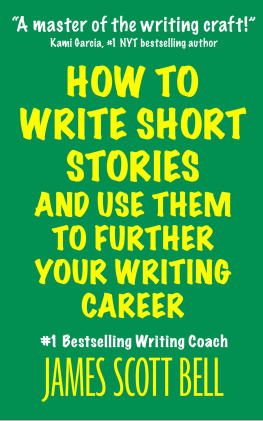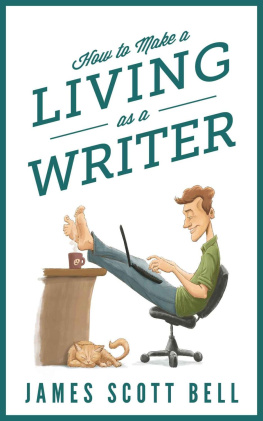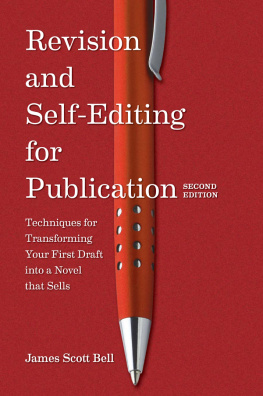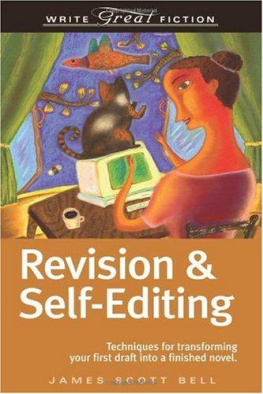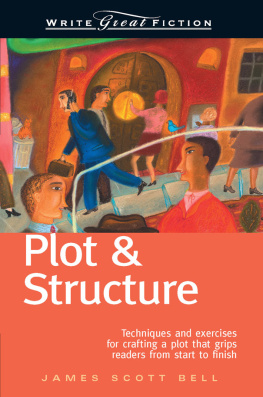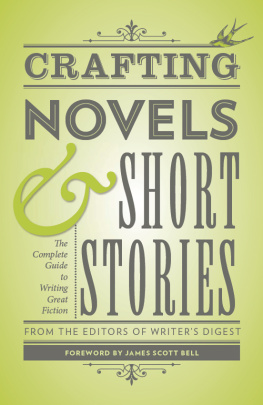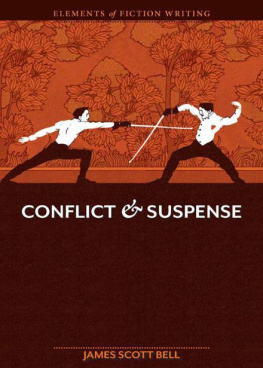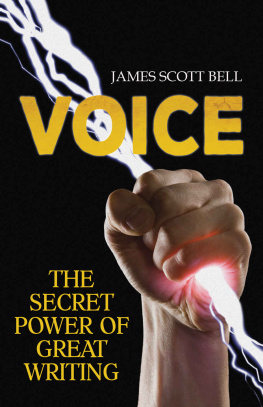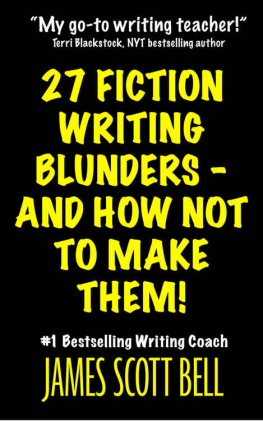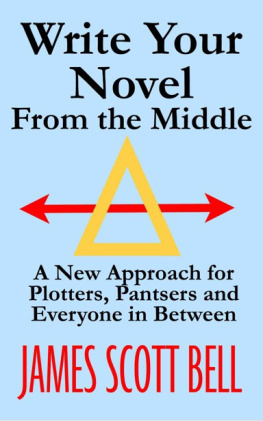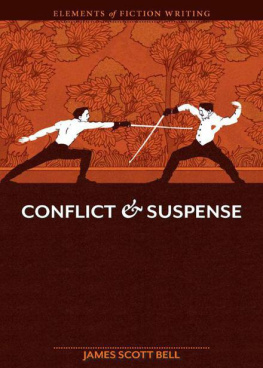Fiction Attack!
Insider Secrets for Writing and Selling Your Novels & Stories
For Self-Published and Traditional Authors
#1 Bestselling Writing Coach
James Scott Bell
Copyright 2012 by James Scott Bell
All Rights Reserved
Compendium Press
Woodland Hills, CA
Contents
Life Pitched High
Can you identify the moment in your life when you made the decision I am going to be a writer?
What did it feel like? What does it feel like now?
Perhaps the best novel about a writer, Jack London's semi-autobiographical Martin Eden, captures these singular passions in a memorable way. Early in the novel young Martin is at sea, returning to San Francisco, when the idea takes hold:
And then, in splendor and glory, came the great idea. He would write. He would be one of the eyes through which the world saw, one of the ears through which it heard, one of the hearts through which it felt. He would writeeverythingpoetry and prose, fiction and description, and plays like Shakespeare. There was career and the way to win to Ruth. The men of literature were the world's giants... Once the idea had germinated, it mastered him, and the return voyage to San Francisco was like a dream. He was drunken with unguessed power and felt that he could do anything... To write! The thought was fire in him. He would begin as soon as he got back... There were twenty-four hours in each day. He was invincible. He knew how to work, and the citadels would go down before him.
Back on land, Martin sets out with zeal, up to 18 hours a day of it, to realize his writing dream:
He was profoundly happy. Life was pitched high. He was in a fever that never broke. The joy of creation that is supposed to belong to the gods was his. All the life about himthe odors of stale vegetables and soapsuds, the slatternly form of his sister, and the jeering face of Mr. Higginbothamwas a dream. The real world was in his mind, and the stories he wrote were so many pieces of reality out of his mind.
I can pinpoint the day I took the big dive into writing. It was in 1988 and I went with my wife to see a double feature. The movie I really wanted to see was Wall Street. The movie it was playing with I didn't know that much about, except that it starred Cher.
That movie was Moonstruck, and it knocked me out.
I was a practicing lawyer at the time and had been told writers were born, not made. I had believed that for ten years.
But Moonstruck was so good I knew I had to try to learn to write, even if I failed. I was determined to use the study disciplines I'd picked up in law school to find out how to write fiction. In my journal I wrote: Today I have decided to become a writer.
And I was soon lost in the joy of creating, like Martin Eden. I still remember those early years of writing and discovering as primarily joyous.
And you know what? All these years later, having published almost 40 books, I still find learning about the craft of fiction exciting. Even if I read about a technique I know, but get a slightly different take on it from the author, I feel a surge of happiness. Because I love what I do and I love anything that helps me get better.
I also love helping other writers. I've been doing it for almost twenty years now, and when I see light bulbs go off in a student's eyes, I'm just as jazzed as I am when I myself learn something new.
So that's why I am offering this book to you now. It's full of the best stuff I know about writing and the writing life. Much of it is a collection of posts on writing I've done for The Kill Zone blog, but grouped in categories for your convenience. It is a companion to my other collection, Writing Fiction for All You're Worth.
I do hope you enjoy it, and find a little of that Jack London fire inside you.
Keep writing.
James Scott Bell
The Writing Craft
My Aha! Moment
Some time ago I got a lovely email that begins:
I want to send you a big, sincere "thank you" for writing your book on plot and structure.
After trawling through many books on plotting and feeling more and more confused and anxious it was a relief to come across your book. Finally I began having "'aha!" momentsand I've only read three chapters!
You are so encouraging and the exercises are really usefulalthough now I find myself watching television and asking "what if?" a great deal of the time...
If an ex-lawyer can still have working cockles in his heart, mine were warmed. I love hearing when a writer starts to get it. An "aha moment" is exactly what I strive to provide in my writing books and workshops. Because it was just such a moment that put me on the path to selling my work.
I know exactly when it was, too, because I've kept a diary of my writing life. On September 15, 1990, I wrote these words:
EPIPHANY!
Light! A bulb! A flash! A revelation! My muse on fire!
I feel like I've suddenly "clicked into" how to write... I mean, everything I've been reading and brooding about for the last year has finally locked. There is this tremendous rush of exhilaration. It just happened, and now I feel like everything I write will be at least GOOD, but can also be EXCELLENT.
I was writing screenplays at the time, and I'd written five or six over two years without success. But the next one I wrote was optioned and got me into a top agency. I optioned other properties, too, but when they didn't get pushed up the ladder (an old Hollywood story) I got frustrated and wrote a novel, using the same revealed wisdom. The novel sold and came out in 1995. Then I wrote a legal thriller and got a five-book contract. I've not been without a contract since.
And all of it I trace back to that epiphany. Here's the story.
I was a member of the Writer's Digest Book Club at the time. One of their offerings was by Jack Bickham, Writing Novels That Sell. I'd been reading screenplay books, like Syd Field's Screenplay and Linda Seger's Making a Good Script Great. I thought, well, there may be some cross-over here from the novel world, and I bought the book.
Bickham advised this was a book for people wanting to get serious about becoming professional writers. Not fluff, only what had worked for him and his writing students at the University of Oklahoma. He said it should be studied sequentially, as each chapter built upon the last.
So that's what I did, starting at page one and working my way through. And when I got to Chapter 8, covering "scene and sequel," that's when the bulbs started popping in my brain.
Up to that time I did not have a strategic approach to writing the next scene. I just sort of let it bubble up in my imagination (or had committed to it on an index card) and went for it. But my scripts weren't working. People told me this, but couldn't tell me why, which was frustrating beyond measure.
Now, suddenly, I knew why they weren't working. A superb writing instructor had nailed it and explained it to me.
In brief, a scene is a unit of action made up of a goal, conflict and disaster. The disaster doesn't always mean something huge, though it sometimes is. It is a setback of some sort, making the hero's situation worse.


